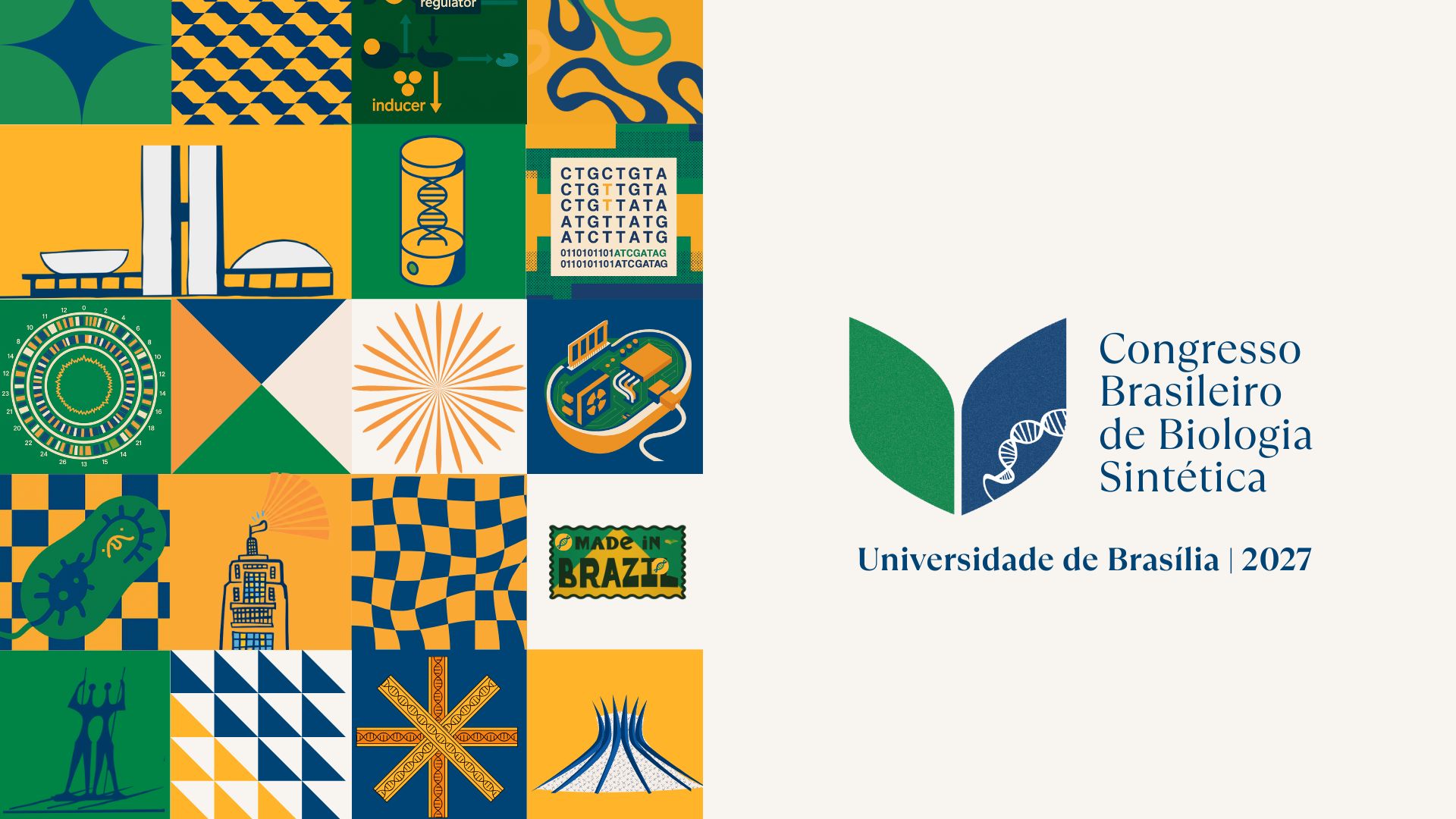2nd Brazilian Conference on Synthetic Biology brings together scientific community to discuss the future of the field in Brazil
Press Release by: Cibele Zolnier (Executive Director at SynBioBR) e Giovanna Maklouf (Operations Director at SynBioBR)
published on 08/11/2025 | updated on 08/15/2025
Between July 30 and August 1, the University of São Paulo (USP) hosted the 2nd Brazilian Conference on Synthetic Biology (CBBS), organized by the Brazilian Association of Synthetic Biology (SynBioBR). The second edition occupied two important spaces at the university — the István Jancsó Auditorium at the Brasiliana Guita and José Mindlin Library (BBM-USP) and the USP Innovation Center (INOVA USP) — offering a diverse program and expanded infrastructure.
The event doubled the number of participants compared to the previous edition and tripled in terms of program, structure, and reach. In total, there were more than 190 participants, including 30% undergraduate students, 25% graduate students, 25% professors and PhD researchers, and 20% professionals in the field, reinforcing the interdisciplinary and multi-sector nature of the congress.
The 2nd CBBS was marked by strategic debates, the launch of innovative initiatives, presentations of cutting-edge research, and awards recognizing participants ranging from talented high school students to scientists with decades of contributions to the field.
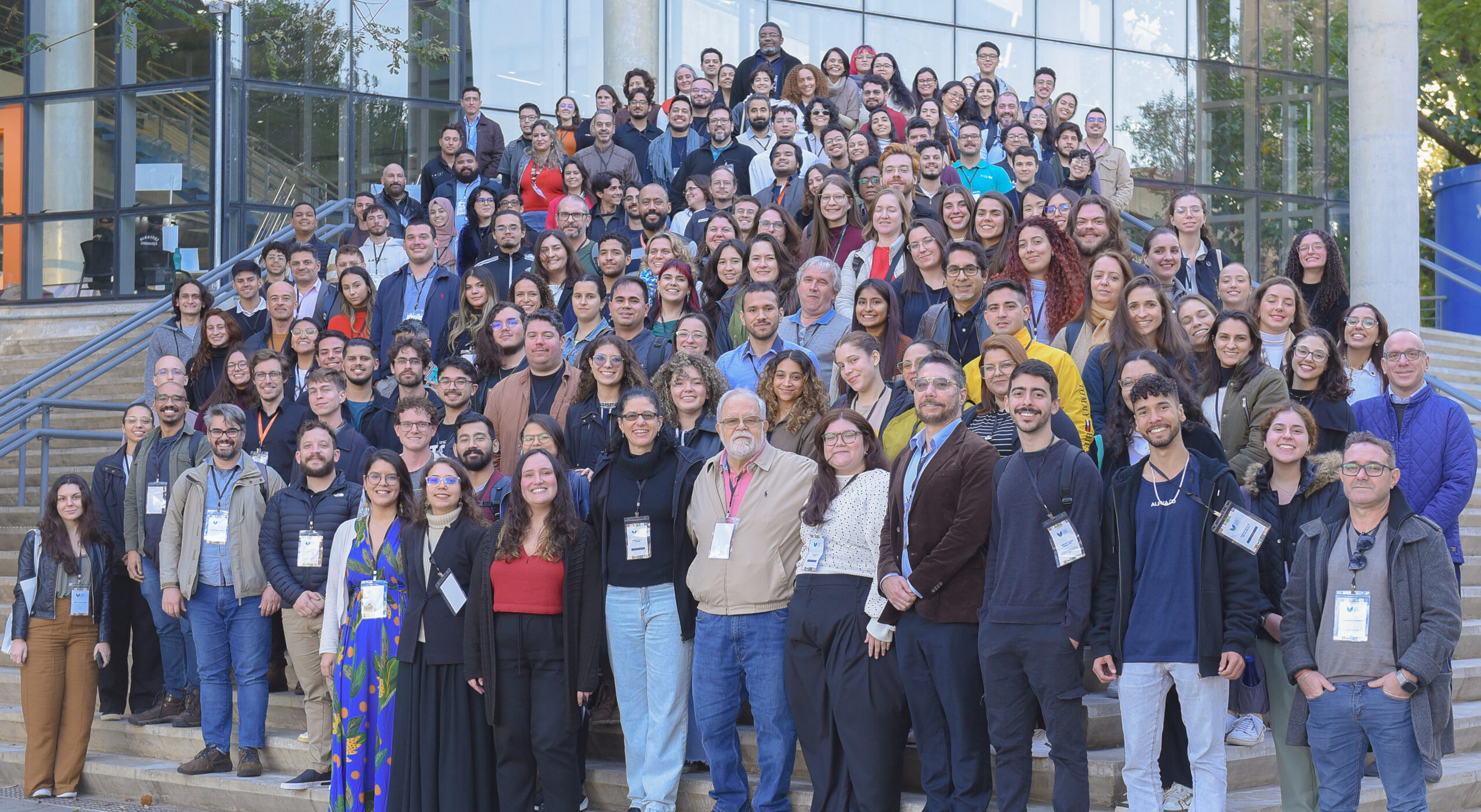
Keynotes and roundtables: strategic topics for the future of SynBio
The opening ceremony featured remarks by Cibele Zolnier (SynBioBR/Reclone), Danielle Pedrolli (UNESP), and Giovanna Maklouf (SynBioBR/Unicamp), who provided an overview of SynBioBR, the CBBS, and other initiatives. They also highlighted the article recently published by the Brazilian Synthetic Biology Network at ACS Omega: Unveiling the Frontiers of Synthetic Biology in Brazil: Pioneering the National Synthetic Biology Network.
The highlight of the session was the keynote lecture by Prof. Dr. Spartaco Astolfi-Filho (UFAM), revisiting four decades of genetic engineering development in Brazil and offering reflections on the challenges and opportunities for the future of national biotechnology.
The CBBS also featured international keynote speakers:
– Dr. Jennifer Molloy (University of Cambridge / ICGEB) presented open-source tools and approaches to accelerate synthetic biology in low- and middle-income countries.
– Prof. Dr. Pablo Cruz-Morales (DTU / Novo Nordisk Biosustain) discussed the use of filamentous fungi as bioindustrial platforms in the transition to a new era of industrial chemistry.
The roundtables brought together experts to discuss:
– Artificial intelligence applied to synthetic biology: with Mariana Abrahão de Morais (CNPEM) and Leonardo Tomazeli Duarte (Unicamp), moderated by Isaac Guerreiro (Differential Bio)
– Entrepreneurship in deep techs: with Mona Oliveira (Biolinker) and Douglas Veronez (Emerge), moderated by Caroline Salvati (Profissão Biotec)
– The future of bioinputs: with Ana Calheiros de Carvalho (DTU) and Daniela Bittencourt (EMBRAPA), moderated by Alexsandro Galdino (UFSJ)
– The role of the bioeconomy in Brazil’s sustainable development: with Marilene Pavan (ISI Biodiversity and Circular Economy) and Mario Murakami (CNPEM), moderated by Cibele Zolnier (SynBioBR)
In addition, the conference featured important lectures by sponsors, presentations from the National Institutes of Science and Technology (INCTs) in Engineering Biology and Industrial Biotechnology, and from S2B: Center for Systems Biology and Synthetic Biology at USP, which enriched the debate on the future of the field.
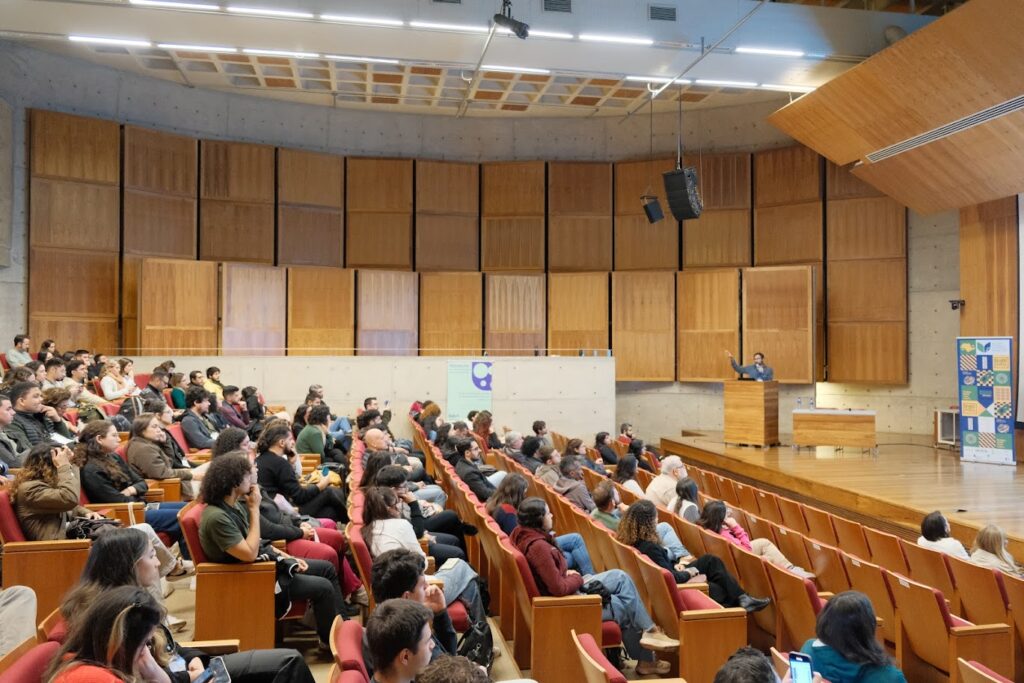
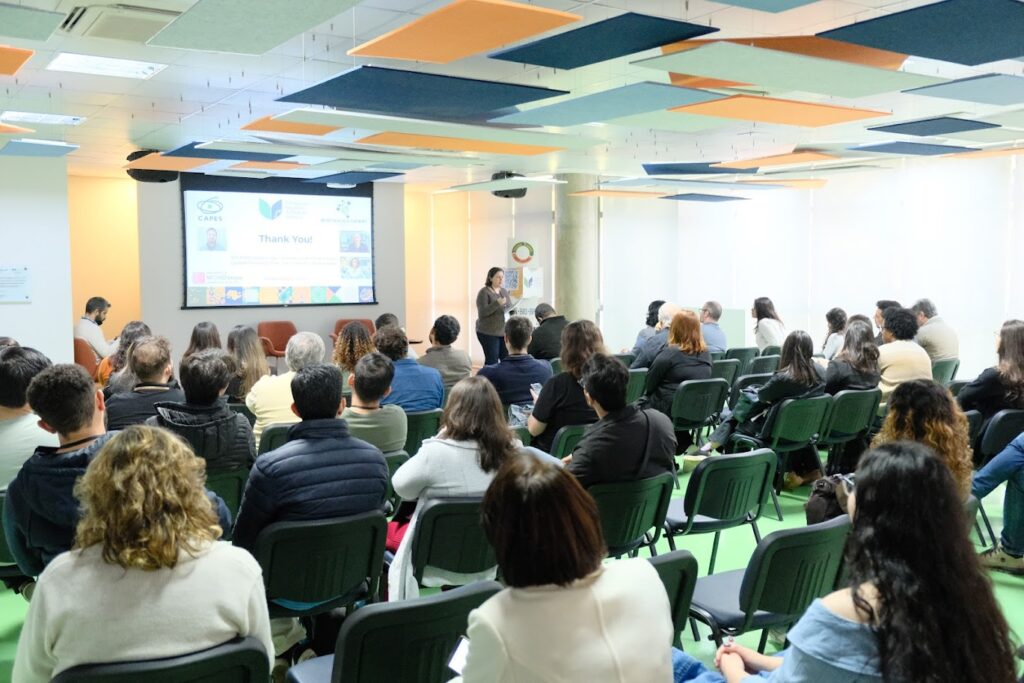
Showcasing scientific research and fostering young talent
The CBBS featured 11 oral presentations and 44 posters, bringing together research from undergraduate, graduate, and professional participants in the areas of synthetic biology, genetic engineering, metabolic engineering, and systems biology.
The best works were awarded in the following categories:
Best Oral Presentation – Professionals: Genetic Engineering with Quantum Circuits: creating codes and studying BioBloQu genetic elements, by Marco Oliveira (EMBRAPA Genetic Resources and Biotechnology – CENARGEN)
Best Oral Presentation – Graduate: Design Of A Glycolate-Responsive Biosensor To Engineer Saccharomyces cerevisiae For Glycol Compound Biosynthesis, by Ícaro Fier (Unicamp)
Best Oral Presentation – Undergraduate: Heterologous Expression and Comparative Analysis of Sweet Proteins Thaumatin I and II in Escherichia coli and Pichia pastoris, by Fernanda Maschio (UFSCar)
Best Poster – Professionals: Development of a Low-Cost In Vivo crRNA Transcription System, by Cristian Rojas (UNILA)
Best Poster – Graduate: Development of a Protein Release System for Bacillus subtilis, by Gabriela Paiva (Unesp)
Best Poster – Undergraduate: Selective degradation of fatty acids for the production of high-value alkenes in Saccharomyces cerevisiae, by Kauan Martins (CNPEM)
Another notable aspect was the presence of the teams representing Brazil in the global synthetic biology competition iGEM (International Genetically Engineered Machine): Rio-UFRJ-Brazil, UFRGS-Brazil, UNICAMP-Brazil, UNILA-LatAm, and USP-Brazil.
The event also highlighted the participation of high school students awarded in the fourth edition of the Brazilian Synthetic Biology Olympiad (OBBS). These students were selected for their outstanding performance and recognition in OBBS 2024 within their respective regions, with representatives from public schools in Mato Grosso do Sul (Center-West) and Paraíba (Northeast), and from private schools in Goiás (Center-West), São Paulo (Southeast), and Rio Grande do Sul (South).
Innovation and launches strengthening the SynBio ecosystem
A new feature in the CBBS program was the Startup Showcase, a session presenting innovative solutions from national companies operating at the interface of science and technology, evaluated by industry experts. Participating startups included Beri Biotech, BioinFood, and NexVitro Biologics.
In addition to their presentations, these startups hosted booths in the CBBS Exhibition Hall at INOVA USP, enabling greater interaction with participants and fostering networking among researchers, entrepreneurs, and investors. Other companies present included the event sponsors — New England Biolabs & Uniscience, Twist Bioscience & Interprise, and the startup Biolinker.
Two important launches marked the congress:
– bAIo: an AI-based tool announced by Biolinker, designed to support workflows and the development of new proteins
– Reclone Node at USP: part of the Reagent Collaboration Network, promoting local production of biotechnology reagents
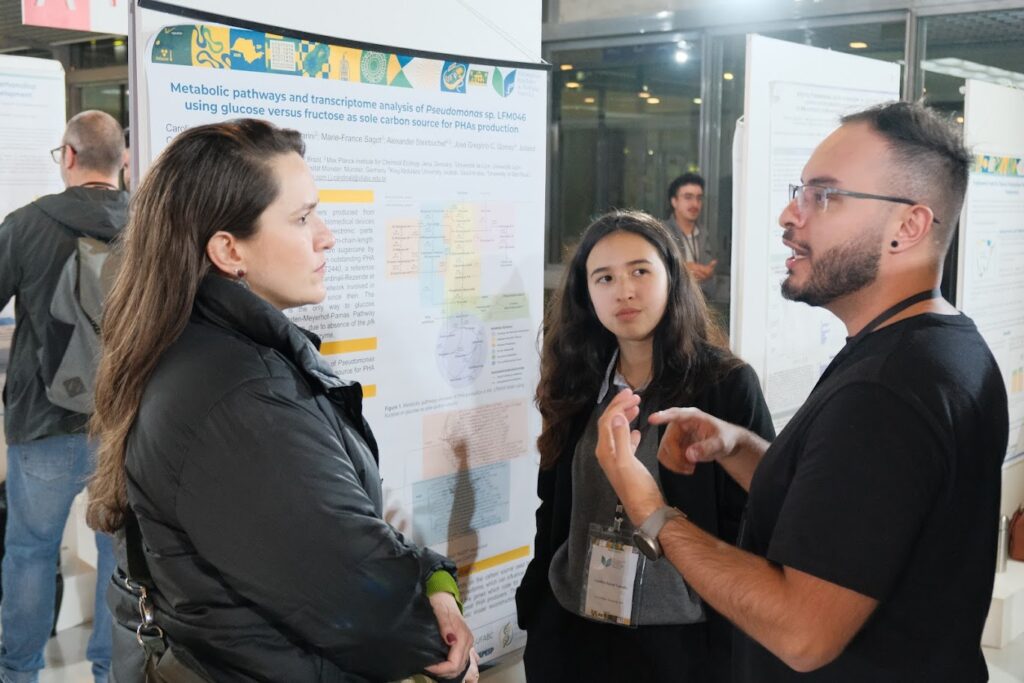
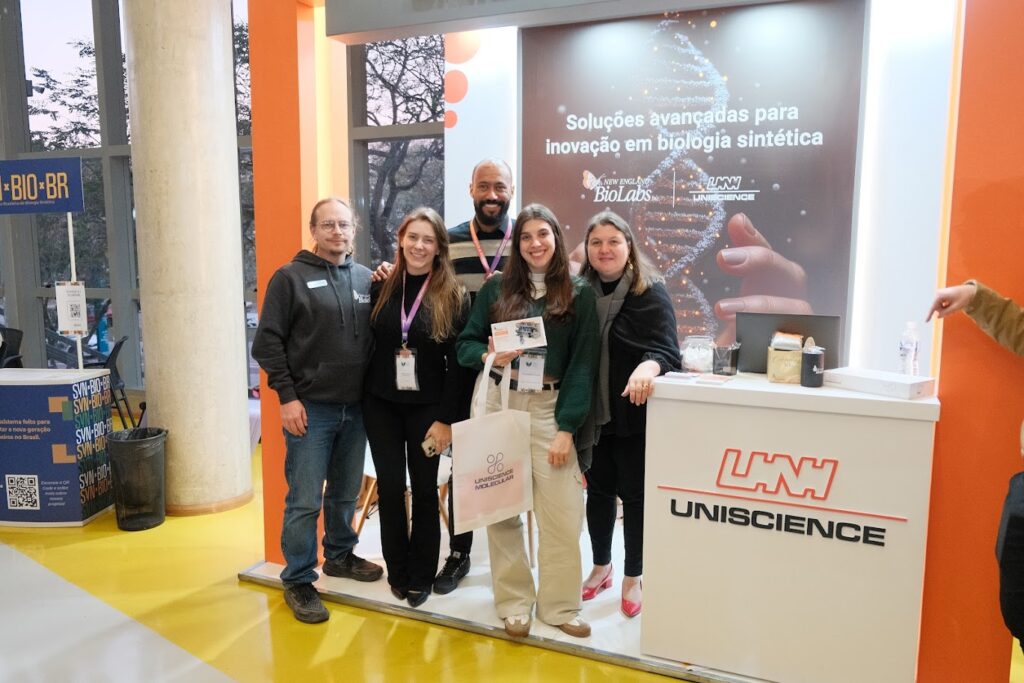
Recognition and closing: celebrating excellence in Synthetic Biology
The congress concluded with the presentation of the Spartaco Astolfi Award for Excellence in Synthetic Biology, created to honor inspiring careers in the field. Professor Astolfi was the first honoree, and the award will continue to be presented in future editions.
The event also hosted the Meeting of the Brazilian Synthetic Biology Network, bringing together representatives from universities and research institutes to discuss strategic collaborations and joint initiatives.
The CBBS was held with the sponsorship of New England Biolabs, ICGEB, Twist Bioscience, Cristália, and BioLinker, as well as the essential support of partner institutions and companies: INOVA USP, Emerge, Profissão Biotec, Editora UFABC, Unesp, Promega, Allternativa Eventos, and Exxtend.
CBBS has established itself as the main gathering point for Brazilian synthetic biology, connecting science, innovation, and education. SynBioBR reaffirms its commitment to strengthening the national ecosystem and expanding Brazil’s leadership in this strategic area for science, technology, and sustainability.
Save the date: The next Brazilian Conference on Synthetic Biology (CBBS) will be held in 2027 at the University of Brasília (UnB), further strengthening the presence of synthetic biology in different regions of the country and promoting the expansion of the national ecosystem!
Want to learn more or share news about the CBBS? Contact SynBioBR at [email protected]
*When sharing photos, please credit @andre.piffer.
